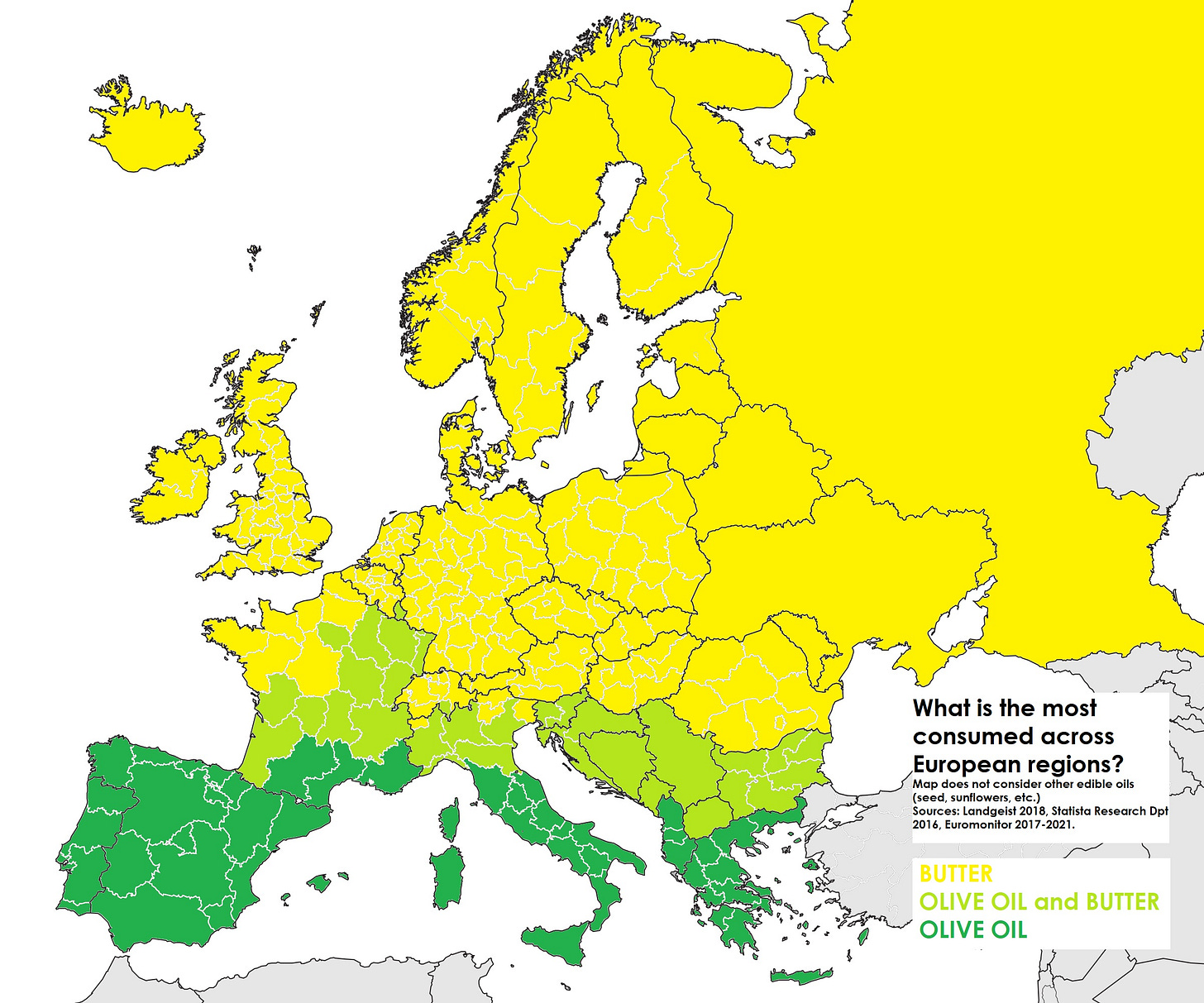The Protestant Reformation was a really big deal
Like reading and science? Thank Martin Luther and John Calvin
Lots of people, all over the world, eat chickens.
Very few of them, though, routinely use rendered chicken fat as a cooking medium. And I’m always reminded during these High Holy Days that Ashkenazi Jews are an exception to that rule. Even those of us who don’t keep kosher often have some affection for our culinary traditions, and schmaltz is a necessary ingredient in properly nostalgic matzoh balls. Your latkes come out much more delicious if you fry them in it.
Our great-grandmothers, however, were presumably using schmaltz on an everyday basis to cook all kinds of things. That’s because European cooking writ large is divided by an orientation toward olive oil in the southern part of the continent and the use of butter in the northern and eastern parts of the continent.
Today, this is merely a question of cultural tradition. But historically, the divide is oriented around the fact that you can only grow olives in certain places. Where olives were present, olive oil was used heavily. Elsewhere, butter is the cooking medium of choice.
Observant Jews, however, obey dietary laws that forbid (among other things) the mixing of meat and dairy. In the Jewish homeland of the Middle East, and for the Sephardic Jews living in Spanish and Ottoman lands, this was not a practical problem — you just cook your meat in olive oil. But for Ashkenazi Jews who found themselves living in Germany and in the Pale of Settlement, there was a big practical issue: There’s no olive or sesame oil around, and you can’t cook with butter because it’s dairy. The other traditional cooking medium in those parts is lard, but that’s out due to other provisions of kosher law. These days, of course, corn-based oils are widely available in stores, but there was no maize at all in Europe until the 16th century, and I don’t think corn oil was produced until much later.
So, Jews cooked in rendered chicken fat. And I personally enjoy the stuff. But as a reality check, it’s observably true that even though chickens are widely consumed in many cultures, no other cuisine uses a lot of schmaltz. The dividing line between Butter Europe and Olive Oil Europe is a cultural quirk grounded in agricultural realities, and Schmaltz Exceptionalism is a cultural quirk grounded in part in agricultural realities (other Jews just use olive oil), but it’s substantially based on a freestanding religious observance. It’s a matter of people acting in a way that is not grounded in material realities or incentives, just a behaviorally significant piece of dogma.
Which is just to say that religion matters in the world, and it inspires people to do things they otherwise wouldn’t.
For example, Protestants decided early on that it was very important for people to read the Bible. That meant translating Bibles into vernacular language. But it also meant encouraging large swathes of people to learn to read, at a time when nothing about the economic fundamentals particularly suggested that learning to read was important. Later on, learning to read became very important, which meant that places with an established tradition, grounded in faith, of teaching people to read had a major advantage.
Protestants love to teach reading
This blog is named after a line from Max Weber’s essay on “Politics as a Vocation.”
Another of Weber’s famous works concerns “The Protestant Ethic and the Spirit of Capitalism,” which (to oversimplify) argues that Protestantism encouraged hard work and wealth accumulation and helped generate a culture of prosperity. But in an important 2009 paper, Sacha Becker and Ledger Woessmann test an alternate theory of Protestant prosperity. They start with the observation that in the old Kingdom of Prussia, the Protestant share of the population was largely a function of distance from the city of Wittenberg, where the Reformation began.
Keep reading with a 7-day free trial
Subscribe to Slow Boring to keep reading this post and get 7 days of free access to the full post archives.




